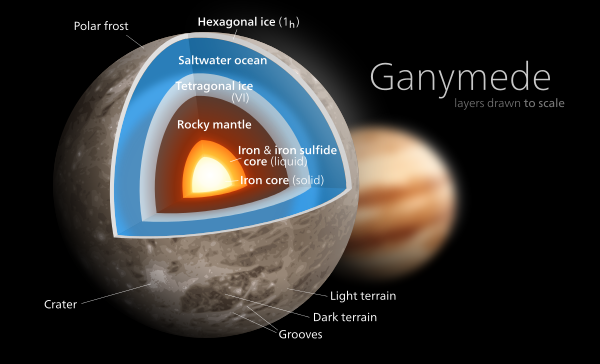Inspired by this article about the recent discovery of a subsurface ocean.
So now we know it has a liquid water ocean and a magnetic field. The subsurface ocean is also protected from radiation by the surrounding crust.
There were two potential resolutions to the auroral shift observations of the Hubble: Either a thinner pure water band or a thicker, saltier band of water. Perhaps both exist simultaneously like they do on Earth?
Of the two options, which would be more conducive to the formation of life? I assume the more saline version would encourage more chemical interactions but I don't know.
In either case, what sort of ecosystem would we expect to evolve in this non-photosynthetic, magnetic, underground sea world? What would be key "feeder" species for a food chain?

